Recent Articles
Popular Makes
Body Types
10 Top Electric Cars Under $30,000
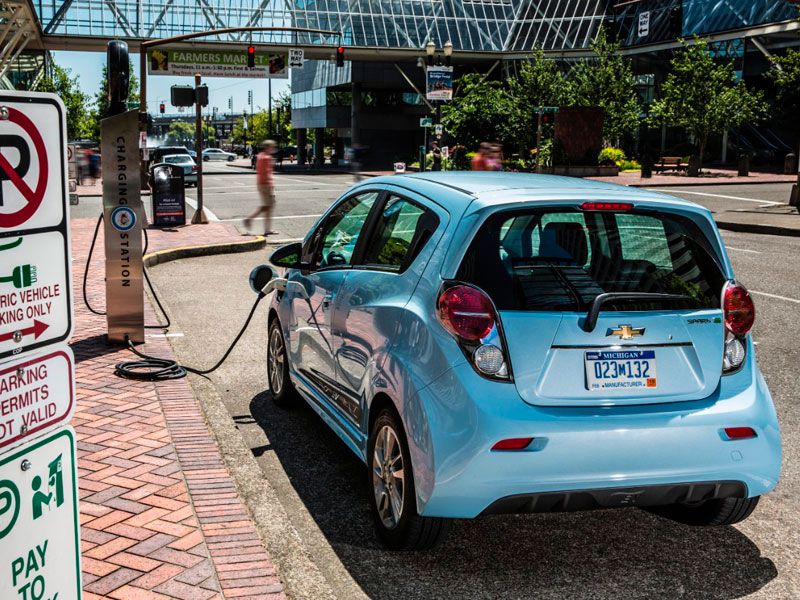
2016 Chevrolet Spark EV rear view charging ・ Photo by General Motors
Though electric cars and other fully electric vehicles are becoming more affordable, they’re still typically more expensive than gas-powered models of similar size and with similar equipment. A federal tax credit of $7,500 helps, and for that reason, manufacturers often advertise electric cars with a post-tax-credit price (although we caution that buyers should consult their own tax professionals regarding eligibility). We looked for 10 new electric vehicles that cost less than $30,000 and came up a bit short, so we made a single exception that stays within the spirit of the list. Here are nine electric cars that come in under $30,000 after federal tax credits, along with a tenth option that comes in quite close.
2016 Smart Electric Drive — $12,490 after federal tax credit
The smart fortwo Electric Drive is the least expensive electric car you can buy in the United States. Unfortunately, it’s also one of the least useful — unless you live in a densely-populated urban area where it’s better to have a small car that can be easily parked than it is to have a large car that holds more people and more stuff. If you’re part of a one- or two-person household, don’t have any pets, don’t need to drive around friends or family, and can charge your electric car at work, the Smart might actually be perfect for you. Otherwise, you should probably plan to spend a little more on an electric car.
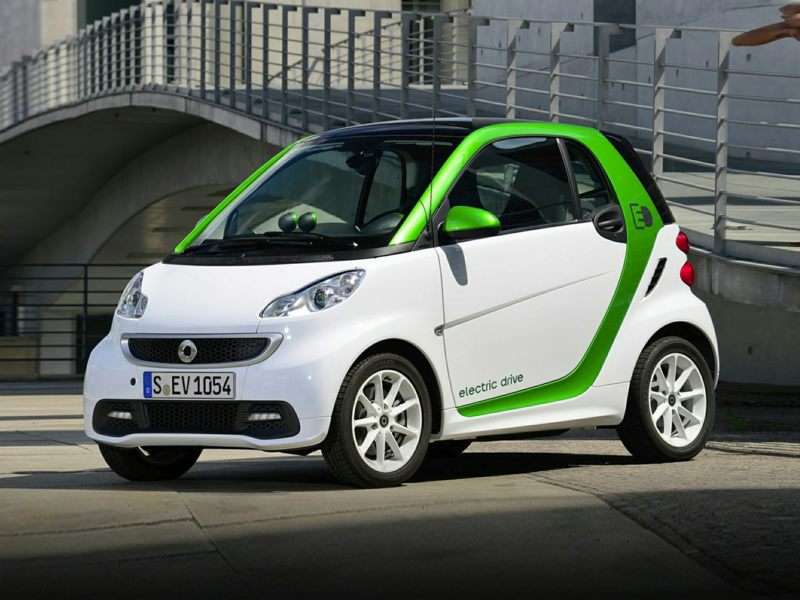
Photo by Mercedes-Benz
2017 Mitsubishi i-MiEV — $15,495 after federal tax credit
If the Smart’s limits are just too much to overcome, consider the Mitsubishi i-MiEV, which is available for an MSRP of $22,995, which comes to just $15,495 after the tax credit. This subcompact 4-door hatchback seats four passengers, putting it within competition of other small city cars. Granted, the cabin isn’t exactly spacious, but at least the seats are there if you need them. The i-MiEV makes just 66 horsepower and has a range of up to 59 miles, meaning that it’s best limited to city driving and short commutes, but if that’s your situation, it’s a great choice for an electric car that costs under $30,000. Mitsubishi also provides an 8-year/100,000-mile warranty on the i-MiEV’s battery.
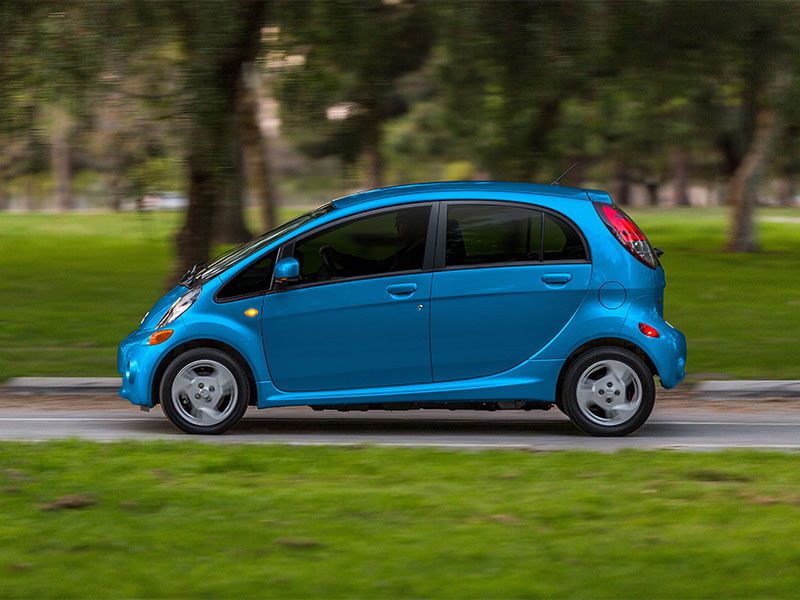
Photo by Mitsubishi
2016 Chevrolet Spark EV — $17,620 after federal tax credit
This is the first of two Chevrolets to make our list of 10 electric cars that cost less than $10,000. It’s a fully electric version of the subcompact Spark hatch, yet another excellent choice for an affordable electric car that doesn’t draw too much attention to itself. The Spark EV isn’t exactly exciting to drive, but it has good maneuverability and decent interior space for a car of its size, plus a range of 82 miles per charge. The 2016 Spark EV has an MSRP of $25,120, which gets whittled down to $17,620 after the tax credit, but if you’re interested, go now. Chevy discontinued the Spark EV for the 2017 model year, and after dealerships sell off the last of the 2016 models, they’re gone for good.
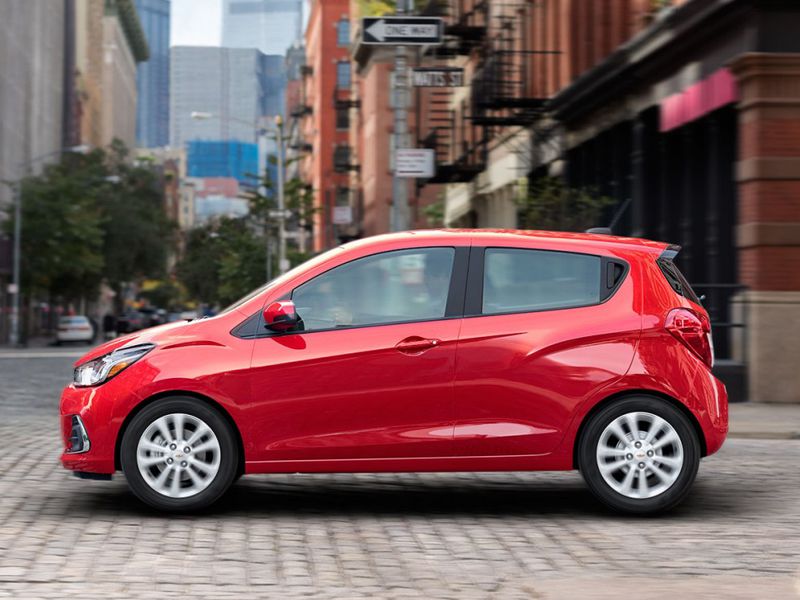
Photo by General Motors
2016 Volkswagen e-Golf — $21,495 after federal tax credit
We all know by now that the Volkswagen Golf is a practical and charming little hatchback. And if you don’t know that there’s an electric version called the e-Golf, with a price tag under $30,000, it’s possible you’ve seen one but didn’t even notice. If’s a regular ol’ Golf body powered by a 115-horsepower electric motor, good for up to 83 miles of travel per charge. The e-Golf’s MSRP of $28,995 comes out to $21,495 after the federal tax credit, which, frankly, isn’t a bad price for a VW these days. There is a catch, though. Volkswagen only offers the e-Golf in certain states, so check with your local VW dealership to see if it’s an option for you.
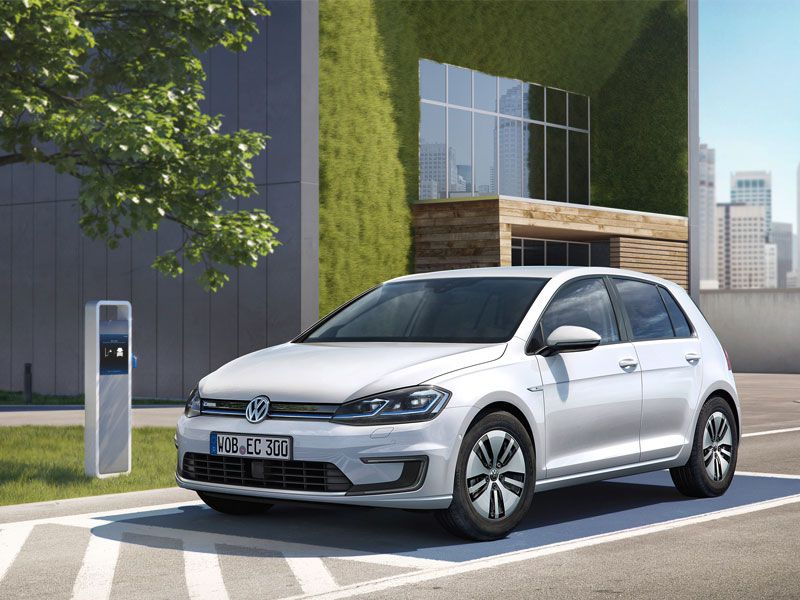
Photo by Volkswagen
2017 Hyundai Ioniq — $22,000 after federal tax credit
If you want an affordable electric car that flies under the radar, the all-new 2017 Hyundai Ioniq is your best bet. At a price of $22,000 after the available federal tax credit, it comes within very competitive distance of other cars its size. As for styling, well, it looks like your basic, inoffensive, everyday Hyundai, and it drives like one, too. With 118 horsepower and 124 miles of range on a full charge, the Ioniq comes up a bit short compared to other models on this list, but its price, its lifetime battery warranty, and its sheer normalcy might go a long way toward convincing otherwise-hesitant potential customers. Look for the electric Ioniq, alongside hybrid and plug-in hybrid versions, over the next few months.
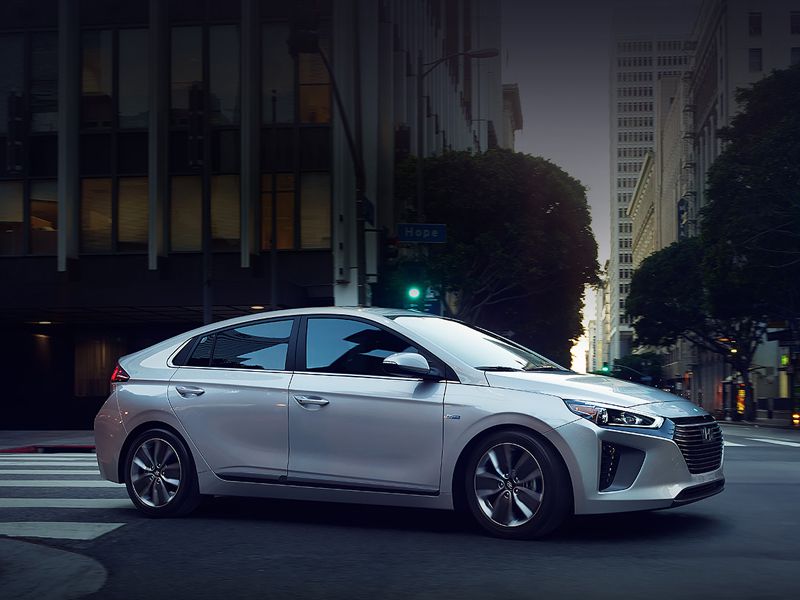
Photo by Hyundai
2017 Nissan Leaf — $23,180 after federal tax credit
The Nissan LEAF was introduced in 2011, and it quickly because one of the world’s best-selling electric vehicles. This compact hatchback offers spacious accommodations for five and plenty of cargo room, and can travel 107 miles on a charge. The Leaf’s MSRP is just barely over budget at $30,680, though the tax credit brings it down to a downright reasonable $23,180. Not bad at all for a car that helped the public realize that electric vehicles could actually be a decent daily driver. It’s not that fast (particularly on the highway), it could use some interior updates, and Nissan should consider adding more safety features. However, it’s a really affordable way to see what it’s like to live with an electric car.
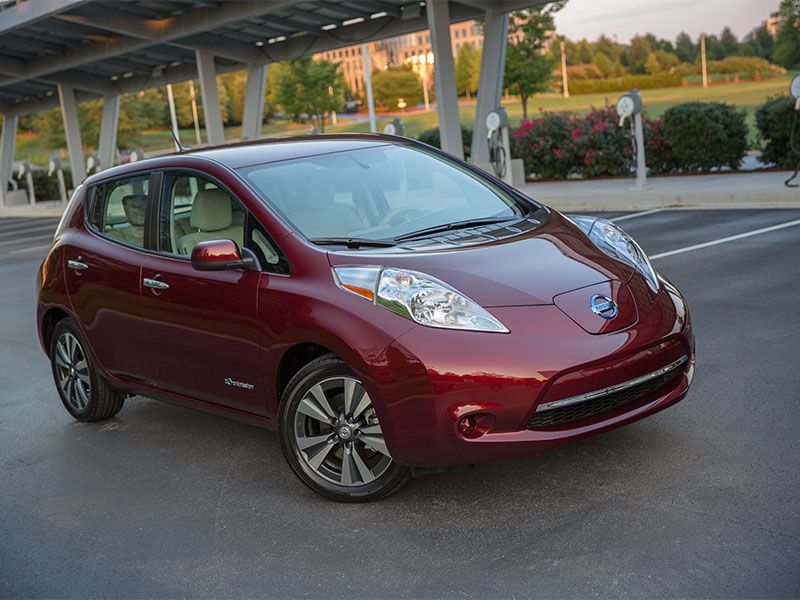
Photo by Nissan
2017 Kia Soul EV — $24,750 after federal tax credit
Speaking of “normal” electric cars, take a look at the 2017 Kia Soul EV. It’s one of the many options on this list that requires incentives to qualify for a list of electric cars under $30,000, but it’s worth it. The Soul EV starts at $32,250, which is a lot of money for a Soul, but federal tax credits bring it down to a much-more-palatable price of $24,750. The Soul EV can travel up to 93 miles on a charge, and offers the same flexibility as the regular Soul, with comfortable space for up to five passengers. Plus, the Kia Soul has been around for a long time, so this electric version blends right in with traffic.

Photo by Kia
2017 Tesla Model 3 — $27,500 after federal tax credit
The 2017 model year brings Tesla’s most affordable vehicle yet, the Model 3. This electric crossover provides a range of 215 miles, seats five adults in an upscale cabin, and is designed to achieve full marks in safety testing, although such tests haven’t been conducted as of this writing. Plus, the Tesla Model 3 can hit the 0-60 mark in less than six seconds. The Tesla Model 3 carries a base MSRP of $35,000, which works out to $27,500 after the federal tax credit. Keep in mind, though, that Tesla is facing a backlog of Model 3 orders, and customers who order now are facing an estimated wait of a year or more before their vehicles are delivered.
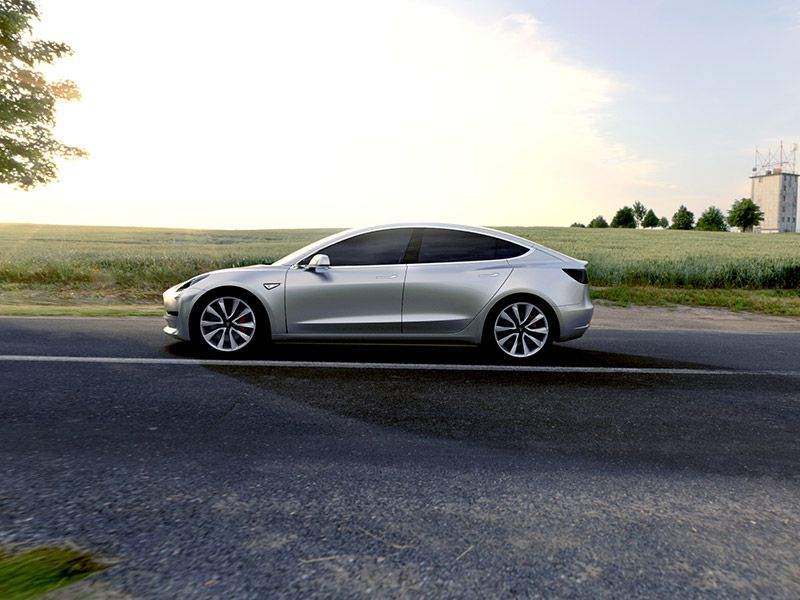
Photo by Tesla
2017 Chevrolet Bolt — $29,120 after federal tax credit
The Chevrolet Bolt is completely new for the 2017 model year, and it goes places that the brand’s Volt plug-in hybrid (which was groundbreaking in its own ways) can’t. The Bolt can travel up to 238 miles on a full charge, or up to 90 miles on a 30-minute “quick charge,” making it one of the most versatile such cars on the market. Though the Bolt cuts corners by using some cheap interior materials, the cabin is still quiet and comfortable, and spacious enough for five. The Bolt’s MSRP is a considerable $36,620, but after the federal tax credit, it comes down to $29,120, which is just low enough to join our list of 10 electric cars that cost less than $30,000.
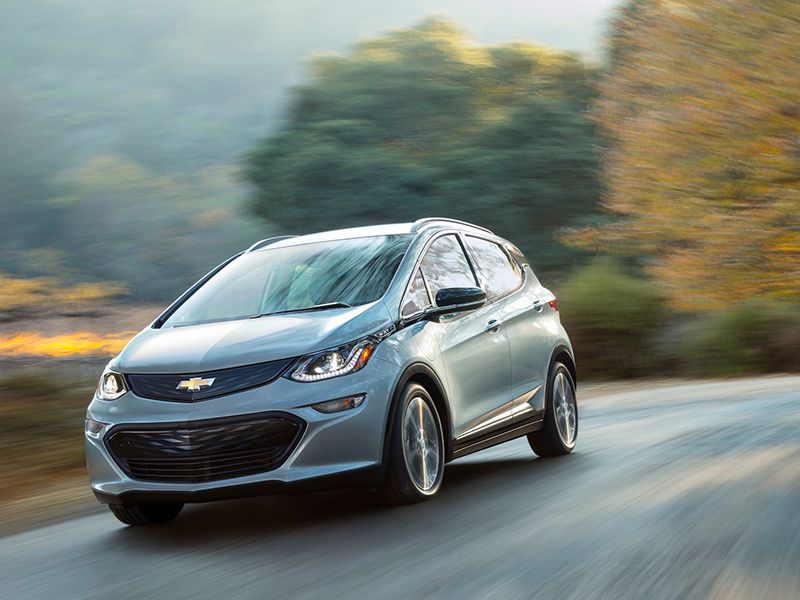
Photo by General Motors
Honorable Mention: 2017 BMW i3 — $34,900 after federal tax credit
Interested in a luxury electric car for just over $30,000? Okay, the BMW i3 pushes our budget more than we’d like, but it just goes to show how expensive electric cars are — and what relative bargains we found. With an MSRP of $42,400, which comes to $34,900 after the federal tax credit, the 2017 BMW i3 takes the last spot on our list of 10 electric cars under $30,000. If you have any wiggle room in your budget, it’s well worth considering. BMW got a little outside the brand’s comfort zone when it came to trim levels and package names (Giga World? Tera World?) but it pays off in terms of a comfortable and upscale hatchback that can travel up to 114 miles on a charge.
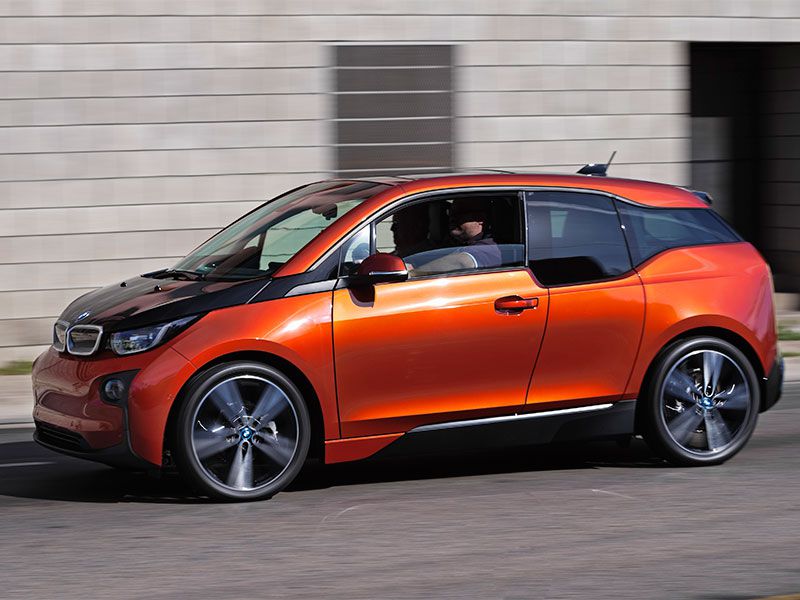
Photo by BMW